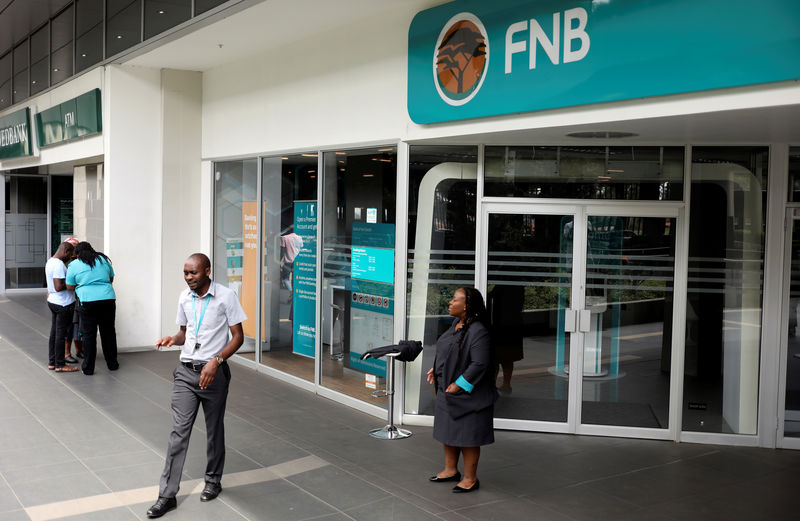
South Africa’s FirstRand Cuts Fees as ‘War’ with New Rivals Escalates
JOHANNESBURG – FirstRand is to become the latest South African lender to slash prices on its retail banking products, as the arrival of a host of new, cheaper rivals sparks a scramble for customers among South African banks. FirstRand’s move, announced on Thursday, to cut fees and up rewards on its current accounts from July […]

JOHANNESBURG – FirstRand is to become the latest South African lender to slash prices on its retail banking products, as the arrival of a host of new, cheaper rivals sparks a scramble for customers among South African banks.

FirstRand’s move, announced on Thursday, to cut fees and up rewards on its current accounts from July follows similar decisions by competitors like Standard Bank in response to cut-price or zero-fee offerings from new entrants.
“I think it’s war,” Christoph Nieuwoudt, head of consumer banking at FirstRand’s retail unit, First National Bank (FNB), said in an interview on Wednesday.
“We wouldn’t have gone this big if we didn’t think it was necessary.”
The changes in some cases mean rewards given back to customers outweigh the fees charged, with FNB effectively paying clients to bank with them in hopes of preventing any erosion in growth, especially in its core middle-income segment.
Those clients, as well as entry-level and lower-income customers, are at risk of being poached by the likes of incomers TymeBank or Bank Zero.
Newer players have forgone physical infrastructure for a more digitised model, allowing them to offer cheaper products and attractive interest rates.
Like big traditional lenders from the United Kingdom to Australia, South Africa’s major banks are concerned they could be beaten by increasingly popular app-based lenders and financial technology firms on price and convenience.
They have been cutting branches and digitising to compete.
Jan Meintjes, portfolio manger at FirstRand investor Denker Capital, said the actions the banks were taking showed they were trying to protect their share of the middle market, where losses would hit them hardest.
However, the cheapest product wouldn’t always win.
“It is the combination of perceived value for money and good service,” he said.
FNB dropped rates on its e-wallet, entry-level and mid-tier accounts, while also expanding the range of services and benefits accessible to customers, such as adding a card to e-wallet accounts and widening the array of rewards available.
Customers across most of the accounts would also be given free airtime, data and text messages on FNB Connect, its mobile offering, through their account.
Nieuwoudt said the changes would hit revenues somewhat, but only marginally, amounting to a “couple of percent of profit on the consumer base”.
While a “defensive” move, big banks were well positioned to fend off their new competition, he said. But that did not mean they didn’t have to adapt.
“There’s no use in trying to milk customers, customers will go,” he said. “You can’t hang on to margin that is going to be eroded anyway.”
(Reporting by Emma Rumney; Editing by Jan Harvey)
